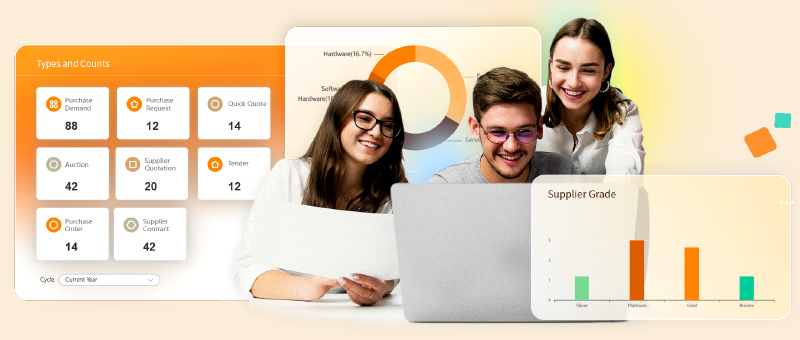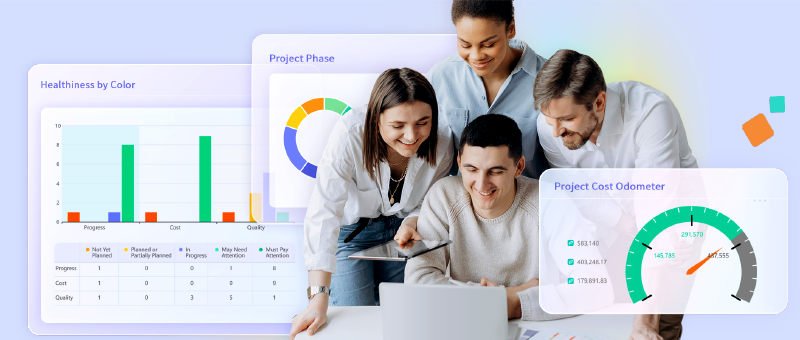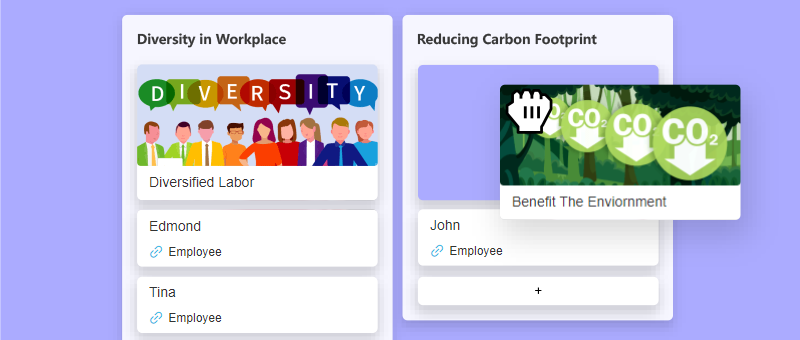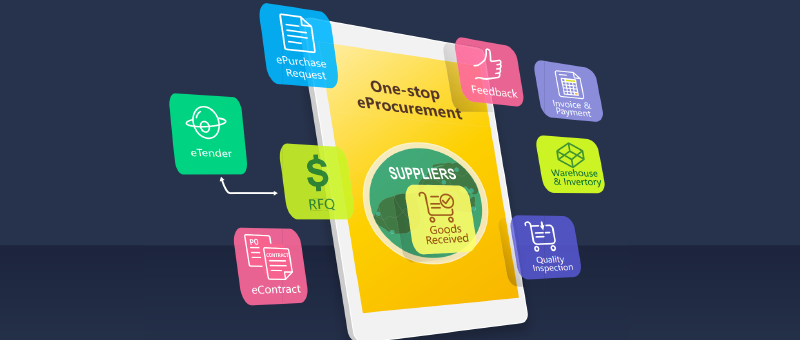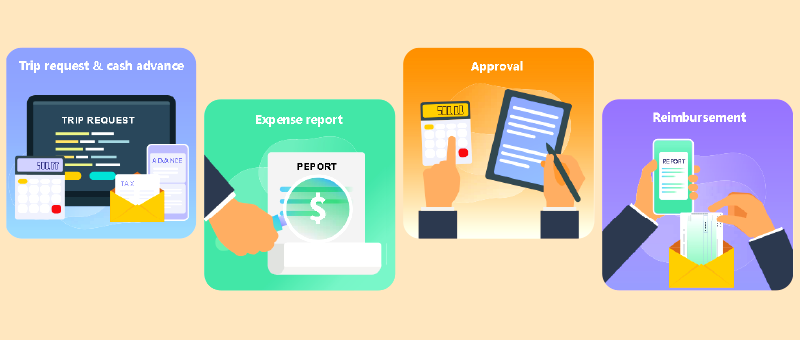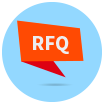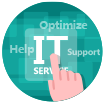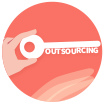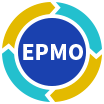Special News
Top Procurement Management Systems You Need
2024-09-04
Key Features of Procurement Management Systems
Procurement management is indispensable in the daily operations of any enterprise. To enhance efficiency, it is crucial to leverage a procurement management system. Such systems integrate various aspects of the procurement process into a unified, digital platform. Here are some key features:
Integration: Consolidates all stages of the procurement process within a single system, facilitating oversight and control.
Automation: Enables automated workflows and approvals, reducing manual intervention and boosting efficiency.
Data-Driven: Records, aggregates, and analyzes data from the procurement process, providing valuable insights for decision-making.
Security: Incorporates robust security measures to safeguard procurement information from unauthorized access or breaches.
Review of Top Procurement Management Systems
1. 8Manage SRM
Founded in 2004, 8Manage SRM is an efficient online procurement management software that offers a comprehensive and intuitive solution covering the entire process from purchase requests to supplier payments.
Internal Efficiency: 8Manage SRM helps build a centralized procurement demand management center.
External Collaboration: Facilitates cross-platform and cross-organization online collaboration with suppliers through functions such as supplier lifecycle management, strategic sourcing, procurement collaboration, and financial reconciliation.
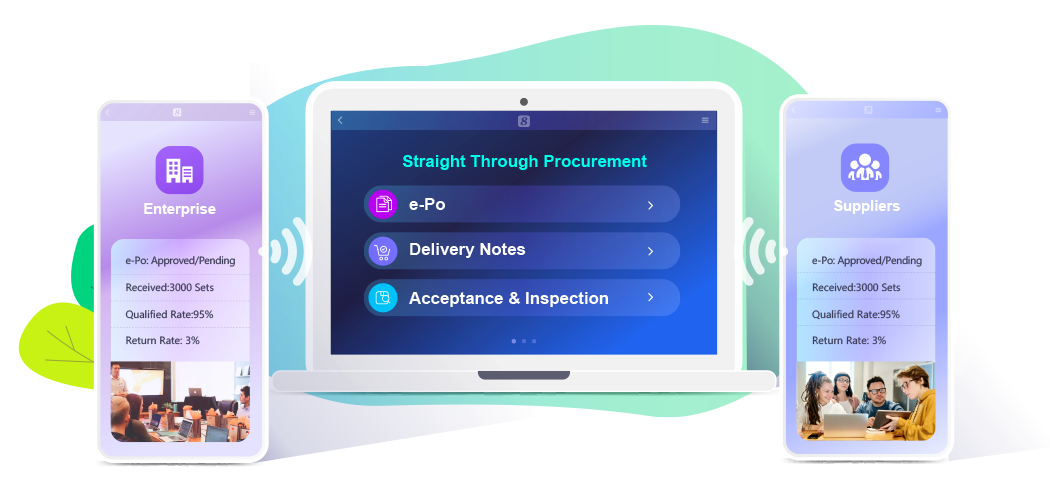
Key Features of 8Manage SRM:
● Comprehensive functionality catering to diverse procurement needs.
● High responsiveness, ensuring system stability even under heavy loads.
● Adaptable to various industries, offering customized solutions.
● Strong data analysis capabilities for deep insights.
● Efficient multi-currency management, simplifying global procurement.
● High integration with ERP and accounting systems.
● Mobile support, allowing operations via smartphones or tablets.
2. Coupa
Founded in 2006, Coupa began as a procurement management SaaS and gradually developed into a cloud-based BSM (Business Spend Management) platform. Coupa provides a unified platform where organizations can manage all spending in one place, streamlining purchase requests, order processes, and real-time tracking. It is ideal for medium to large companies, though it is relatively more expensive than other solutions.
Key Features of Coupa:
● Easy management of purchase orders.
● Inventory management to track and oversee stock levels.
● Budget review and approval to minimize overspending.
● Tracking and reporting features that simplify management.
3. SAP Ariba
Established in 1996, SAP Ariba is a renowned provider of procurement and supply chain management solutions, offering a "software + service + network" approach suitable for medium to large enterprises. SAP Aribas procurement solutions include procurement management, strategic sourcing, supplier management, contract management, invoice management, and supply chain management.
Key Features of SAP Ariba:
● Manage global spending and compliance on a single platform.
● Continual introduction of new features to the software.
● Intuitive user interface.
● Seamless integration with ERP systems.
4. Kissflow
Founded in 2012, Kissflow is a low-code platform designed to help build, deploy, and manage enterprise-grade applications, accelerating development times. It simplifies, accelerates, and streamlines procurement and approval processes from a centralized portal. While the platform is feature-rich, contract and asset management are still in their early stages.
Key Features of Kissflow:
● Easy setup and installation without requiring extensive technical expertise.
● Simplifies workflows by automating repetitive tasks.
● Multiple pricing plans cater to different business types.
5.Zoho Creator Procurement
Zoho, founded in 1996, has launched over 50 online SaaS software products. Zoho Creator Procurement offers easy-to-use tools that help businesses efficiently manage purchase orders, supplier management, and expense tracking.
For businesses already using other Zoho applications like CRM and accounting software, Zoho Procurement is an attractive choice due to its seamless cross-platform integration.
Key Features of Zoho Creator Procurement:
● Simplifies delivery, validates goods, and facilitates collaboration for seamless operations.
● Dynamic approvals, automated spending monitoring, and proactive alerts.
● Multi-level approvals to guide procurement with certainty.
Application Scenarios for Procurement Management Systems
● Procurement Planning: Develops reasonable procurement plans to ensure smooth production operations. In addition to considering factors like order quantity and timing, market fluctuations and demand changes must also be accounted for to maintain long-term effectiveness.
● Supplier Management: Selects high-quality and reliable suppliers to ensure product quality and timely delivery. Beyond basic criteria such as quality and reliability, factors like sustainability and social responsibility should also be considered to establish a solid foundation for long-term cooperation.
● Price Inquiry and Comparison: Allows the rapid collection of supplier quotes through the management platform, making it easy to compare and select the best offers. Besides price, factors such as quality, delivery time, and payment terms should be considered to choose the optimal supplier.
● Procurement Review: Ensures that procurement processes are standardized and compliant through systematic reviews within the procurement management system. During the review, potential risks should be assessed and managed to ensure a smooth procurement process.
● Purchase Order Management: Automates the generation, tracking, and approval of purchase orders. Alongside automation, the execution of purchase orders should be regularly monitored and evaluated to optimize management and ensure efficient operations.
Conclusion
Procurement management systems are crucial tools for automating, digitizing, and integrating procurement processes. As enterprises increasingly recognize the importance of effective procurement management, these systems will continue to play a central role in business operations, helping companies navigate complex market environments with stability and confidence.
Most popular

How IPD drives product R&D toward commercial success

Top procurement management systems to elevate your business in 2025

Are your project managers ready for AI?
Related articles
Real estate procurement management system selection guide
2025-02-13
2025 Guide to supplier management systems for manufacturers
2025-01-24
Hotel procurement and cost control: Your key to higher revenue
2025-01-16
Top procurement management systems to elevate your business in 2025
2025-01-10
Key nodes in automotive supply chain: Logistics, procurement, cost
2025-01-08
Previous Article >
Common Challenges in Supplier Selection
Common Challenges in Supplier Selection
Next Article >
The Importance of Project Milestones
The Importance of Project Milestones






















